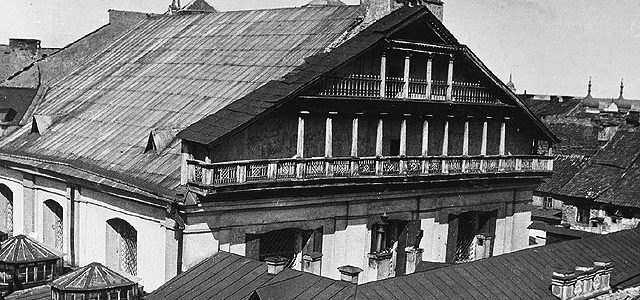At the behest of the Lithuanian Jewish Community an international Heritage Advisory Group consisting of renowned global experts on Jewish heritage was formed, including:
Barbara Kirshenblatt-Gimblett, advisor to the director and senior curator of main exhibits at the POLIN Polish Jewish History Museum; Assumpció Hosta, general secretary of the European Association for the Preservation and Promotion of Jewish Culture and Heritage (AEPJ); Sergey Kanovich, founder of the Maceva NGO and project manager of the Šeduva Jewish Memorial Fund; Lyudmila Sholokhova, PhD, director, YIVO archive and library; Sergey Kravtsov, senior research correspondent, Jewish Art Center, Hebrew University; the Lithuanian Jewish Community was represented by LJC heritage conservation specialist Martynas Užpelkis and architect and designer Victoria Sideraitė-Alon.
The expert group now has issued a set of recommended guidelines for the memorialization of the Great Synagogue of Vilna.
Since it is basically clear that attempts to rebuild the Great Synagogue would send a false message, they instead recommended emphasizing the uniqueness of the site’s history and its current state. Commemoration should pursue the objectives of conserving what remains and proper education. The project should focus on recovering and expressing the centrality and unique meaning of the site in Lithuanian Jewish history and memory.
The site has all the necessary ingredients to become the center point for Jewish Vilna tourism with clear links to other sites in town. It should serve the local community and tourists alike, but it should avoid the addition of lofty construction and instead the values of the site should be expressed through text and multimedia presentations.
Lithuanian Jewish Community chairwoman Faina Kukliansky strongly welcomed the recommendations. “We cannot rebuild what is lost. We cannot return the Jewish people who have perished. We are obliged, however, to reclaim the Great Synagogue site, to bring it back to the Jewish Community and to the city as the focal point of that extraordinary Jewish life which existed in the Jerusalem of the North.”
Sergey Kanovich, a member of the expert group, added: “The best way to preserve the Great Synagogue of Vilna is to conserve the remnants and to communicate its history to future generations through a compelling experience of the intangible values of the site.”
RECOMMENDED GUIDELINES FOR THE COMMEMORATION OF THE GREAT SYNAGOGUE OF VILNA:
• The damage done to the site and to the Jewish community during and after WWII is not repairable and so rebuilding the Great Synagogue and/or any other significant part of the site would convey a false message. The recommended approach emphasizes the uniqueness of the site, its history and the current moment.
• The project should focus on conservation and on exposing existing remnants rather than building lofty constructions. The existing kindergarten/school building is not in keeping with the site and should be removed.
• The project should focus on recovering and expressing the prominence and unique meaning of the site in Lithuanian Jewish history and memory.
• The site should communicate its meaning first and foremost through a tangible experience of what has been found and conserved.
• The site should also offer visitors a compelling experience of the site’s intangible value through text and multimedia presentations.
• The site should become the focal point for visiting Jewish Vilna, with links to other sites in the city. Through multilingual signposting, printed and digital maps, a way-finding app and a consistent visual language, Jewish sites all over the city could be brought together to form a Jewish heritage route or precinct.
• The site should be designed and built to serve both the local community and tourists.
• The site should be accessible 24 hours per day.
• Use of the site should be non-commercial, consistent with its legal status as a national memorial park.
• The Lithuanian Jewish Community is the historical and legal heir and owner of the site, and therefore concept development, decision-making, physical design and reconstruction must be carried out in full coordination with and with the full approval of the Lithuanian Jewish Community.


